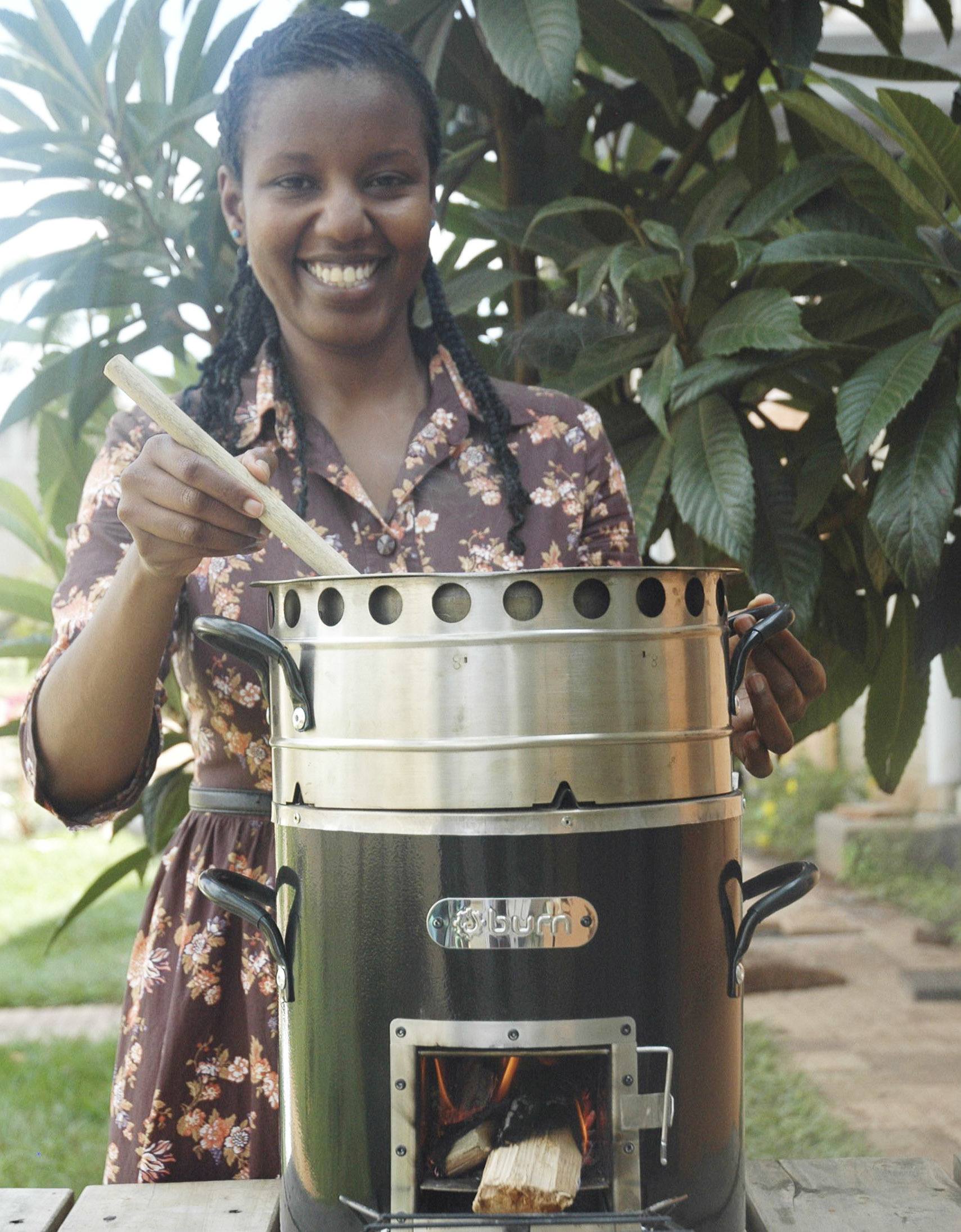A three-year partnership between a Vashon cookstove design organization and the University of Washington has paid off in the form of a new, wood-burning stove for use in developing countries. Creators say that it will save lives by significantly reducing emissions from indoor cooking smoke.
The engineers of Burn Design Lab — an island organization — are the brains behind Burn Manufacturing Co., the privately held, for-profit company founded by islander Peter Scott. The company, which has a factory in Kenya, builds the cookstoves designed by the organization. The design lab’s mission is to model and test clean-burning cookstoves that will help solve the problems of deforestation and death from respiratory diseases typically caused by indoor cookstoves and the smoke that comes from them. According to Burn’s website, indoor air pollution from open fires and traditional stoves will kill 550,000 people this year. The World Health Organization reports 3 billion people use these means to cook their food — half the world’s population.
“We see (these stoves) as leverage on this huge, worldwide problem,” Burn Design Lab Executive Director Paul Means said last week. “If we can help (these people in Africa) be successful, we can solve the problem.”
But designing a cookstove for use in the developing countries is easier said than done.
“Cookstoves aren’t easy,” Means said.
Not only do the stoves have to be efficient and clean-burning, but designers must ensure that the stoves will actually be useful for the target population, durable enough to stand up to everyday use and scaleable, with the ability to make thousands and sell them at an inexpensive price.
“It needs to be what’s needed in the culture, what we call an adoption rate,” Means said. “It needs to be something they love, that will stand up to being used three times a day. We spend lots of time in the field testing and re-designing. It’s a huge challenge, but a noble challenge worth working on.”
It’s also an expensive challenge. Means spoke to the inherent funding issue that comes with selling a product “to some of the world’s poorest people.”
“(Burn Manufacturing Co.) is a start-up. It hasn’t really made any money,” he said. “It’s difficult for cookstove producers to stay in business. It’s a challenge.”
Since 2013, a large portion of the design lab’s funding stream has come from a U.S. Department of Energy grant that allowed it to work with UW’s Clean Cookstove Lab. But the grant funding is ending, and the organization is kicking off a fundraising effort with a dinner this weekend.
“We’re looking for a donor base,” Burn Design Lab’s Heidi Jackson said about the private dinner. “We had the luxury of being under this larger grant that we’re not going to be under anymore. We’re trying to target individuals who want to partner with us financially.”
The funding push comes on the heels of a new addition to the Burn cookstove line. The company launched its first stove — the charcoal-burning jikokoa — in 2014. It uses 50 percent less charcoal than other stoves and releases 63 percent less carbon monoxide than other stoves, according to the Burn website. Now, with help from the UW, the organization has developed it’s first wood-burning stove — the Kuniokoa — set to be unveiled later this year. The Kuniokoa is expected to go into production at the Kenya stove factory, which employs roughly 100 people, at the end of the year.
“Burn Design Lab has been working to develop this next-generation rocket stove that is more efficient and cleaner,” Means said. “It’s been almost three years in the works, and the project is being extended one more year. It’s a continuing partnership.”
Jonathan Posner, principal investigator for UW’s Clean Cookstove Lab, said that the opportunity for this partnership came about three or four years ago when Posner met Burn Manufacturing Co.’s Scott.
“When Peter Scott was running Burn Design Lab, he sent out information to the UW when he was looking for interns,” Posner said. “I was like, ‘Cookstoves? What’s all this about?’ I talked to Peter for about two hours, and I was excited to apply my skills to this. I pledged my enthusiam … wrote a grant to the U.S. Department of Energy.”
Posner and Burn Design Lab received the $900,000 in grant funding — the largest federal grant of its kind — in 2013, and immediately began work to create a wood-burning stove. Their concepts and testing led to the Kuniokoa.
“There’s hundreds that we’ve designed,” Posner said, explaining that
the Kuniokoa is the stove that is the most
realistic for production and distribution.
While Burn has gained a stove from the process, Posner said that the project also resulted in articles in academic journals about the subject.
“While academic journals are very useful, we actually have something to manufacture and scale. It’s something tangible,” he said.
Burn benefit dinner
Those interested in becoming financial partners with Burn are invited to attend Burn Design Labs My Island Dinner at 5 p.m. Sunday, July 24, at Green Gate Farm, 6415 Point Robinson Road.
The farm-to-table dinner will help fund the design lab’s projects.
For more information, email Heidi Jackson at Heidi@burndesignlab.com.



